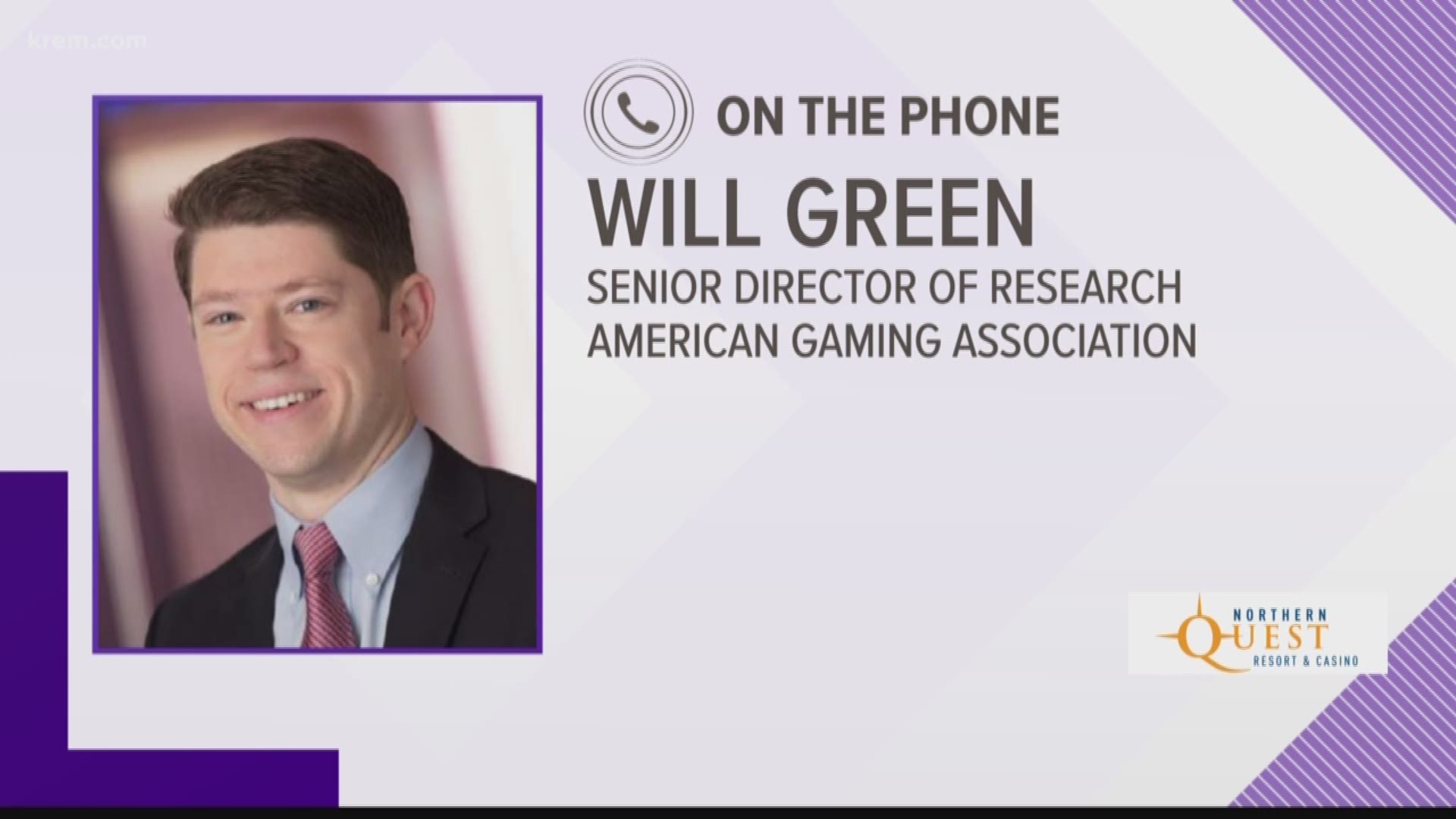On Monday the Supreme Court made a ruling that will have an impact nationwide, and could eventually be felt in Washington and Idaho.
The court ruled 6-3 to strike down a federal law that originated in 1992 which banned state authorized sports gambling. Previously Nevada was the only state where single game betting was allowed.
This doesn't mean anyone in any state can go place a bet. What it does is allow each state to decide on their own whether they want to legalize sports gambling. Some states like New Jersey are well positioned to get in on the action very soon.
It's a bit more complicated in Washington and Idaho - states where casinos only exist on tribal grounds.
Lewis and Clark grad Will Green is the Senior Director of Research at the American Gaming Association, and explained how legalization would work in our area.
"Tribes either individually or collectively are going to look at this issue and decide for themselves whether or not at tribal casinos they would like to legalize and regulate sports betting," Green said. "There would need to be some state legislative action as well but if the state decided to legalize it I think the tribes could move very quickly."
It is worth noting in the digital age this stuff doesn't just take place at casinos - states would still have to determine whether or not to allow online betting through apps and web sites.
Certainly there are very reasonable concerns that arise with this sort of thing, but there are some obvious benefits to legalization.
It's estimated that upwards of 150 billion dollars is spent in illegal wagering - that's money that could be taxed and recouped by states and tribes and put to good use.
There is also the concern of fixed games - as of now it's difficult to track where bets are being made. If it's legalized and regulated it would be easier to see if there is illegal activity going on, and where it's coming from.
And Will also spoke about resources not available now because so much of sports gambling is done illegally. If that's not the case there are safeguards that can be put in place to benefit consumers, including those battling addiction and unhealthy gambling habits.
"They don't have protections, they don't have safeguards," Green said. "People can run off with their money. They don't have problem gaming addiction treatment services. They don't have any resources essentially at their disposal at all. They're left to the mercy of bad actors that operate illegally and that can now change and I think that's really powerful."
It is also worth noting that Washington's anti-gambling laws are very stern.
Long story short, today's ruling has not changed anything in Washington or Idaho just yet - the experience for local fans at local games is no different today than it has been. Again, state and tribal rulings will have to follow. But changes are on the way, and the professional leagues and NCAA responded today. The organizations issued statements, the overarching theme of which was the desire to protect the integrity of the game, and have regulations put in place to make sure that is the case.

